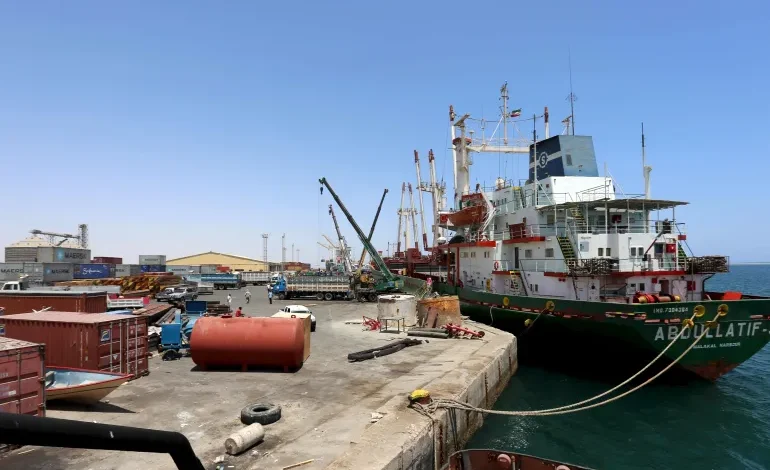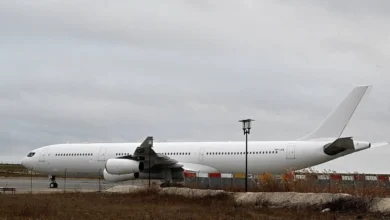Why is Somalia so angry about Ethiopia’s new Red Sea port deal?

A deal under which Somaliland has agreed to lease a Red Sea naval port to Ethiopia has sparked anger in Somalia. Somaliland is a self-governing breakaway state that Somalia says is part of its own northern territory.
Mogadishu recalled its ambassador from Ethiopia on Tuesday to hold “deliberations” on the issue, stating that the port agreement signed a day earlier would increase tensions and endanger stability in the wider Horn of Africa region.
Feelings about the port agreement are already running high. Somalis took to the streets of Mogadishu to protest against the deal on Wednesday.
What’s the deal about?
Signed in Addis Ababa by Ethiopian Prime Minister Abiy Ahmed and Somaliland’s leader Muse Bihi Abdi, the agreement grants Ethiopia a 50-year lease on a naval base with access to Somaliland’s Berbera port for commercial marine operations.
In return, Ethiopia says it will provide an “in-depth assessment” of Somaliland’s quest for official recognition as an independent nation – the first time any other country has offered to do this. Somaliland will also receive a stake in state-owned Ethiopian Airlines, an Ethiopian government statement revealed, although details about this part of the agreement, especially regarding any additional monetary payment, are scant.
In a separate statement posted on X, Abiy’s office called the deal an “historic” one that would allow Addis Ababa to “diversify its access to seaports”. It added that it would also enable both parties to deepen ties across economic and political sectors.The agreement has been long-awaited. In 2019, Ethiopia bought a 19 percent stake in the Port of Berbera with Somaliland retaining 30 percent and Dubai firm and port manager DP World holding 51 percent. In exchange for financing a continuing upgrade of the port with about $442m, DP World will manage the port for 30 years. The United Arab Emirates group’s investment in Berbera has previously sparked controversy in Somalia with parliament voting in 2018 for the deal to be declared null and void. That action had little effect on stopping the project.
Why is Somalia angry about this deal?
Somalia and Somaliland have a long and bitter history as Mogadishu considers the self-governing region of four million people to be a part of its own territory.
Ruled by the British as a protectorate until 1960, Somaliland became independent briefly before it merged with Somalia to form a republic.
The region broke away from Somalia in 1991 after it fought a war of independence along largely ethnic lines. Those wounds still have yet to heal among Somali families on either side of the border.
Somaliland has since operated autonomously although with little revenue and with no access to international trade or financing. Somaliland’s capital, Hargeisa, prints its own passports, issues the Somaliland shilling and holds elections. Some experts regard the region as being one of the “most stable” de facto states in the world.
But Mogadishu regards any international recognition of Somaliland as an attack on Somalia’s sovereignty. The Somali government called the port deal with Addis Ababa “outrageous” and “unauthorised”.
“We will not stand idly by and watch our sovereignty being compromised,” President Hassan Sheikh Mohamud told parliament on Tuesday.
The deal between Somaliland and Ethiopia came just days after Mogadishu and Hargeisa agreed to restart Djibouti-led mediations aimed at getting both parties to resolve their deep-seated issues. Several such rounds of talks have not yielded fruit in the past.
With this latest development, those conversations might be stalled once again, Moustafa Ahmad, an independent researcher speaking from Hargeisa, told Al Jazeera. “Both sides shared different interpretations of what the talks entailed,” Ahmad said. “Mogadishu said it was a talk of reunion, and Somaliland said it was to decide its fate as an independent state. It was bound to fail, but this current crisis just catalysed its collapse.”
Why does Ethiopia want access to the sea?
Ethiopia is one of Africa’s most populous countries with 120 million people, but its economy is restricted by a lack of access to the sea.
The East African country was cut off from the Gulf of Aden after a three-decades-long war saw Eritrea secede in 1993, taking all of the country’s former coastline with it.
Since then, Ethiopia has relied mainly on the smaller Djibouti for its port operations. The Port of Djibouti handles more than 95 percent of inbound and outbound Ethiopian cargo. Addis Ababa has even managed to operate a shipping line from the Djibouti port.
On October 13, Abiy told parliament that the sea was crucial to Ethiopia’s survival.
“Ethiopia is an island surrounded by water but a country that is thirsty,” he said. “The Red Sea and the Nile will determine Ethiopia. They are interlinked with Ethiopia and will be the fundamentals that will either bring in Ethiopia’s development or bring about its demise.”
His statement sparked concern across East Africa. Analysts wondered if he was referring to a possible military invasion of Ethiopia’s neighbours in a region already going through multiple political crises and climate change-related events like drought. But Addis Ababa later clarified that the prime minister was not referring to any sort of military action against its neighbours.
Still, regional ripples may be unavoidable as countries gauge which side to back in this latest row, Ahmad, the researcher, said. Ethiopia contributes to a United Nations peacekeeping mission in Somalia, and that agreement could be threatened. Internally, however, the dispute may score points for Ethiopia’s troubled government, Ahmad said.
“It will give Abiy the opportunity to rehabilitate his unpopular image in the country caused by his wars in the Tigray region, the violent insurgencies in Amhara and Oromo regions as well as the economic regression the country faced for the last few years. Access to the sea has been presented as an existential issue for Ethiopian leaders over the years, and with this new deal, it will give Abiy domestic political gains.”










